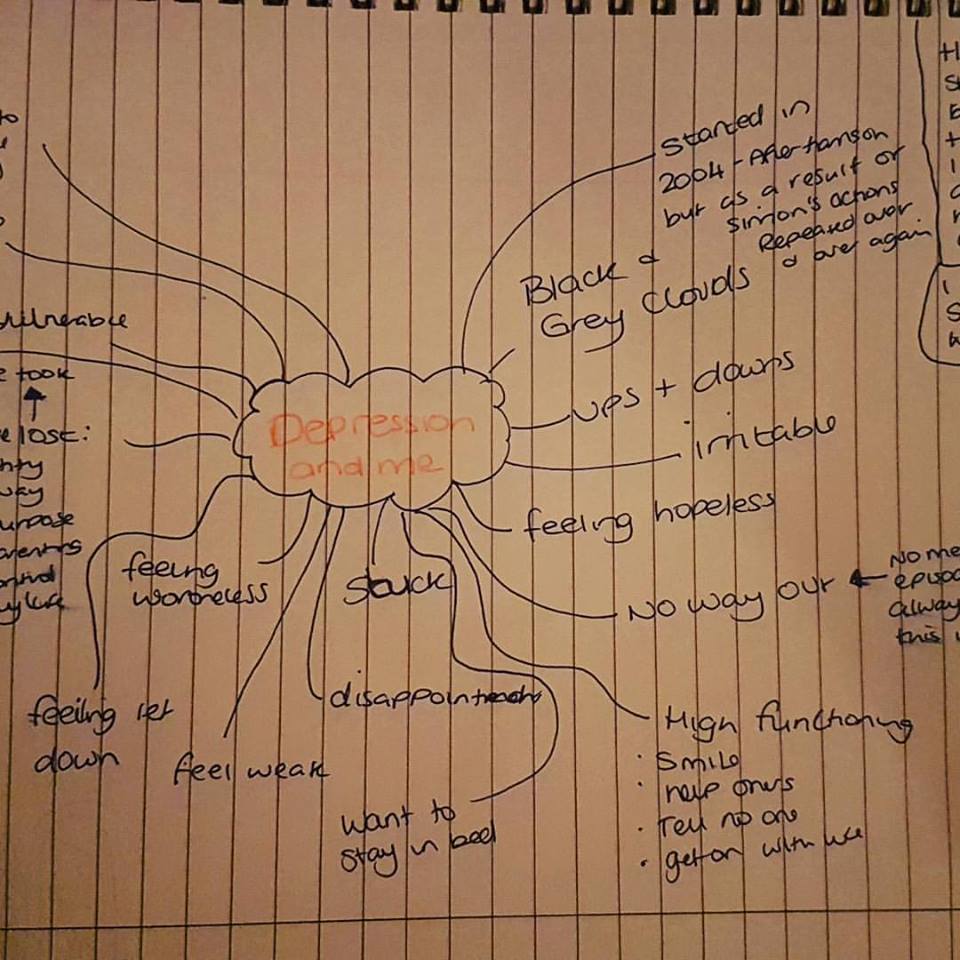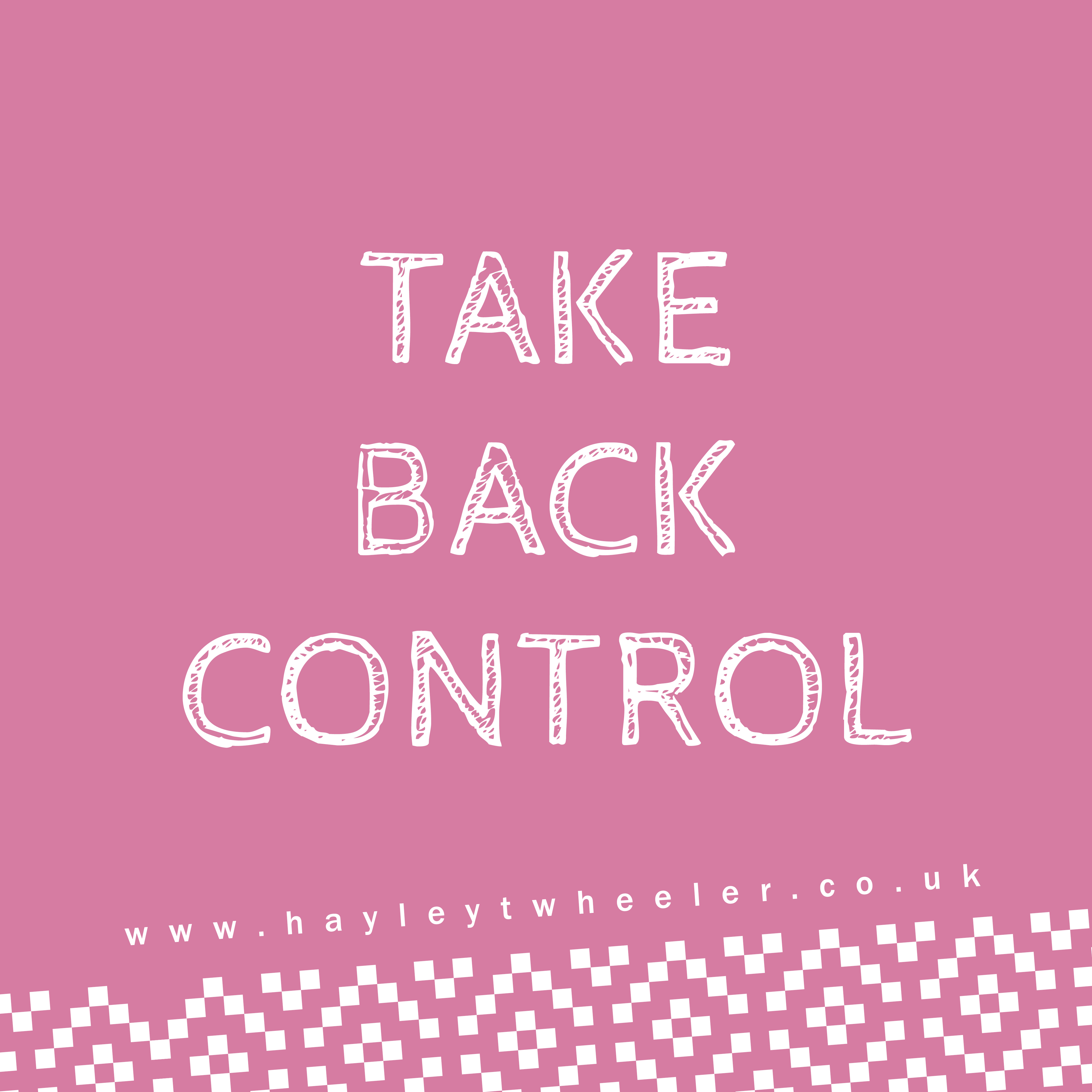Understanding Depression
How depression affects you and how your body behaves is a different experience of each of us. A good way to help you feel more in control of your depression is to learn how to recognise and acknowledge how it impacts you, your life and relationships.
We all have good days and bad days, so its important to remember that people experiencing depression suffer day after day after day. Its an ongoing feeling of sadness and hopelessness that doesn’t shift easily.
When you are living with depression, the numbness descends like misty rain. It surrounds you, seeping and soaking into your body and mind. You feel dark, heavy, lost as the loneliness of keeping your emotions locked away suffocates you, quashing your positive emotions only leaving room for negativity. You feel at times like your moving through sinking sand, every movement brings the darkness closer and tighter.
The hopelessness takes hold and any thoughts turn to your 'uselessness' making you believe you have no power, you are incapable of changing this hell you live in. You resign yourself to acceptance after multiple failed efforts to help yourself or worse still rejection from someone you reached out to. A doctors brush off, the look of disbelief on your friends face, the accusation of 'putting it on' and the infamous 'get a grip'. You know this all too well, you tell yourself often enough. You make friends with depression and an enemy of yourself, you throw self blame and self punishment around your head believing the lies to be true.
It doesn't have to be like this.
SIGNS & SYMPTOMS OF DEPRESSION INCLUDE:
- Feeling numb
- Lack of motivation, Avoidance
- Exhaustion
- Feeling overwhelmed, Feeling like there is no way out
- Feeling helpless, powerless and worthless
- Self punishment
- Feeling out of control
- A black or dark cloud around you
- Being able to laugh, joke and smile but no emotion behind it
- Little or no interest in life
- Over eating, under eating or controlling eating
- Finding ways to feel something e.g. gambling, substance misuse, alcohol
- Physical or emotional self harm
- Over-investment in hobbies, sport, or other people’s lives
- No passion, excitement or fun
- Negative, berating thoughts
- Feeling like you want to pause life
- Working on automatic pilot
- Mindless living
- Sleeping too much or not enough
- Suicidal thoughts
I can identify a similar situation to my own in others now. I can often spot the concealed thoughts and actions of someone struggling on the inside, but sometimes I don't.
Everyone's experience is different, personal to their journey. Others have told a similar story of their experience, and others had different things going on that they had to work through. For all the differences, there is one thing in common.

Changes meant new habits, new exercises, new ideas and new responses.
Changes have been made on every level - Negativity replaced with positivity, feeling strong instead of weak. I'm investing my time and energy into supportive relationships instead of avoiding company. I'm looking for ways to slow down instead of keeping busy. I'm proud of who I am, not guilty for what I am not.
The changes meant I could let in the happiness, and let go of the depression.

All those times I shielded my mental health from others are now being outweighed by me talking about mental health. I share my story with others in the hope that it resonates with them. I want them to know they are braver than they feel, realise they are strong enough to take action and can feel supported. I'm working with others to guide them into realising where they hold onto comfortable but negative patterns, filling a space in their life that positivity can could push out.
We all need to make ourselves more aware about mental health issues - I never once considered that mental health would be something I would struggle with, I have been blessed with good fortunes and happy times for most of my life. It was alien to me - and it is to others too. Support I once had to get better means I can help others, they can win their fight and help others too - it pays forward again and again. Find out more so you can help yourself find the right support in and when you need it. Learn about it so you can help others too.
Its how we make changes - for good.
How does depression show up in children
Depression in Children
There have been suggestions that children with depression act a certain way. If there is a change in their behaviour, it could be down to depression. Even if they were confident previously, they may become withdrawn and more nervous in some situations. Or the opposite can happen – a more outspoken, angry child who now gets into trouble when they used to be quieter and more aware of their surroundings.
There are physical symptoms too – they may be struggling to concentrate or focus on the things they used to, or sleeping eratically – too much or too little. But sometimes there isn’t a change of behaviour – if its been lived with for so long, depressed behaviour becomes the norm.
SIGNS & SYMPTOMS OF DEPRESSION IN CHILDREN INCLUDE:
- Long lasting low mood and sadness
- Being irritable, grumpy constantly
- Loss of interest in life, hobbies, friends, family activities
- Feeling exhausted or tired constantly
- Sleeping too much or not enough
- Loss of concentration
- Lack motivation
- Withdrawing from family and friends
- Struggle with indecision
- Lack of confidence
- Disrupted eating patterns
- Weight loss or gain
- Unable to relax, lack energy, be lethargic
- Suicidal thoughts
- Self harm thoughts or doing
- Feel empty or numb
- Feel worthless, hopeless
Beating Depression with coaching
Anxiety is really complex, and it feel impossible to change or challenge it.
Lots of people come to accept that anxiety is part of their everyday life, and they have to learn to live with it. But it doesn't have to be like that, you have a choice. You can take action to change and even conquer your anxiety and depression. By saying yes to coaching, you can make the impossible possible. Through using my coaching model, and completing my coaching programme I want to give parents, children and adults the power to conquer their mental health.
You really do not have to live in a constant state to fear.